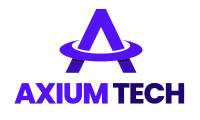Recruitment is a vital part of any business, but for small businesses, it can often feel like an overwhelming task. Limited resources and tight budgets mean that every hire must count. That’s where web-based recruitment software can make a significant difference. For small businesses, an efficient recruitment tracking system not only simplifies the process but also ensures that every candidate gets the attention they deserve.
But with so many options available, how do you choose the right recruitment software? In this article, we will explore the top features that small businesses should look for in web-based recruitment software to streamline their hiring processes, improve efficiency, and ensure a seamless experience for both candidates and recruiters alike.
Ease Of Use And Accessibility
Small businesses don’t have the luxury of dedicated HR departments with extensive training on complex software systems. For recruitment software to be effective, it must be intuitive and easy to use. Whether you are a small business owner, an HR manager, or a hiring manager, you should be able to quickly navigate the system without much technical expertise.
Web-based recruitment software, by nature, offers the advantage of being accessible from anywhere. Whether you’re in the office or working remotely, cloud-based systems allow for easy access to your recruitment tracking system. Look for platforms that offer user-friendly interfaces and are responsive across different devices, such as desktops, tablets, and smartphones. This ensures that your team can stay on top of recruitment tasks without being tied to a specific location or device.
Seamless Integration With Other Tools
Small businesses typically use multiple tools to manage day-to-day operations. Whether it’s an HR management system, accounting software, or communication platforms like email or Slack, it’s important that your recruitment software integrates smoothly with these tools.

Seamless integration eliminates the need for duplicate data entry and reduces the risk of errors. For example, integrating your recruitment tracking system with your email client allows for easy communication with candidates directly from the software. Integration with calendar tools ensures that scheduling interviews is streamlined. Look for a web-based recruitment software solution that offers integration with the tools you already use or provides APIs for custom integrations.
Recruitment Tracking And Candidate Management
One of the most important features of any recruitment software is a comprehensive tracking and candidate management system. With recruitment tracking, you can monitor the progress of candidates through every stage of the hiring process, from the initial application to the final job offer.
A good recruitment tracking system will allow you to:
Sort And Filter Applications
Automatically sort candidates based on specific criteria such as skills, experience, or location.
Track Candidate Progress
See where each candidate is in the hiring process, including interviews, assessments, and reference checks.
Manage Candidate Interactions
Keep a record of all communications with candidates, including emails, notes, and interviews.
For small businesses, where resources are often stretched thin, recruitment tracking can save a lot of time by keeping everything organized in one place. It also improves collaboration among team members, as they can access and update candidate information in real-time.
Automated Job Posting And Candidate Sourcing
One of the most time-consuming aspects of recruitment is posting job openings across various platforms and sourcing candidates. Web-based recruitment software can simplify this process by automating job posting to multiple job boards, social media platforms, and company websites with just a few clicks.
Automation also extends to candidate sourcing. Some recruitment software has AI-powered tools that help you identify and reach out to potential candidates. These tools can scan resumes and profiles on job boards or LinkedIn, looking for candidates that match your criteria. This reduces the time spent manually reviewing applications and enables you to focus on the most qualified candidates.
Customizable Workflows
No two businesses have the same hiring process, and small businesses often have unique recruitment needs. The best web-based recruitment software allows for the customization of workflows to suit your specific processes.
For example, if your recruitment process includes an assessment test or a specific set of interview questions, the software should be flexible enough to integrate these elements into your workflow. Customizable workflows allow you to tailor the recruitment process to match your business’s needs while still maintaining consistency in the hiring process.
Look for software that allows you to set up unique stages in the hiring process, such as initial screening, interviews, tests, and final reviews. You should be able to add or remove steps as needed without disrupting the entire system.
Collaboration And Team Management
Recruitment is rarely a one-person job, especially in small businesses where team members from various departments often get involved. Web-based recruitment software should facilitate collaboration by allowing multiple users to access and contribute to the hiring process.
With collaboration features, your team can leave feedback, share notes, and vote on candidates. This ensures that everyone involved in the hiring decision is on the same page. Furthermore, role-based permissions can restrict access to certain parts of the system based on job responsibilities. For instance, while hiring managers may have access to candidate resumes, other team members may only have access to interview feedback. This keeps information organized and secure.
Reporting And Analytics
Data-driven decisions are crucial, even for small businesses. Web-based recruitment software should offer robust reporting and analytics features that help you measure the effectiveness of your hiring processes.

Some key metrics you should be able to track include:
Time-To-Hire
The average time it takes to fill a position from the initial posting to the offer acceptance.
Source Of Hire
Where your best candidates are coming from (e.g., job boards, employee referrals, social media).
Candidate Quality
The percentage of candidates who are successfully hired after interviews.
Reports and dashboards can give you a clearer picture of how well your recruitment strategies are performing, and they can help identify areas for improvement. This insight can be especially valuable for small businesses looking to optimize their hiring practices without overwhelming their teams.
Mobile Accessibility
Mobile accessibility allows recruiters to review resumes, respond to candidates, and schedule interviews on the go. It also means candidates can easily apply for positions from their smartphones, check the status of their applications, and communicate with recruiters without being tethered to a desktop computer.
Choosing the right web-based recruitment software is a critical decision for small businesses. Look for features like seamless integration, recruitment tracking, automation, customizable workflows, and mobile accessibility to ensure that your software fits the specific needs of your business. With the right tools in place, you can make smarter hiring decisions and build a team that will drive your business forward.
Unlock the secrets to remote recruitment success—download your free guide now and elevate your recruitment to new heights!



